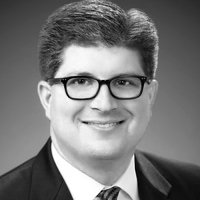Question
What life outcomes can students with intellectual and developmental disabilities expect?
Answer
I am very interested in outcomes. Data about postsecondary outcomes in the years right after high school is available through an extensive study called the National Longitudinal Transition Study-2. It's about ten years old now, but it provides a pretty comprehensive snapshot of what postsecondary outcomes look like in the years right after high school. There are also other societal or governmental sources for these types of results.
In the years immediately after high school, people with intellectual and developmental disabilities go into postsecondary education or postsecondary employment at a rate of about 40%. That is much lower than other disability groups, which average about 60% to 70% participation. It's important to note that that number is limited and doesn't include work done by people in the home, like caregivers raising a family in the home. Thus, across the population, the number is closer to about 90% doing productive enterprise in their daily lives. People with intellectual and developmental disabilities completing productive enterprise is at 40% and is much less than that.
The price for decreased employment and postsecondary education is a complex number to estimate. There are a couple of data points from the CDC. In the early 2000s, close to 20 years ago, the estimated lifetime costs to support a person with an intellectual disability exceeded a million dollars per person per lifetime. Those were healthcare costs, direct support services, lost productivity, and tax revenue. Recently, there's been more attention paid to autism and autism that co-occurs with intellectual disability. A recent estimate for a lifetime cost for a person with autism was 1.4 million per person. For a person with autism and a co-occurring intellectual disability, the forecast was 2.4 million per person per lifetime.
While we do see some better numbers in the years immediately after high school, those numbers don't usually go up. Instead, they tend to go down in a slow negative trajectory across a lifespan. Then, if we look at the employment of adults with disabilities, those numbers look much lower.
If we look at census numbers, the American Community Survey, or VR data, there's a lot of variance around those estimates. Still, it's probably closer to about five to 15% of the population of people with intellectual disabilities that maintain employment as adults. I'm particularly interested in optimizing an employment trajectory so that those adulthood outcomes look a bit different.
The consequences of unemployment or under-employment are substantial and will affect the individual and their support system, structure, and socioeconomics. Health and quality of life, connectedness to family and friends, independence, and community transportation are strongly connected to one's employment.

